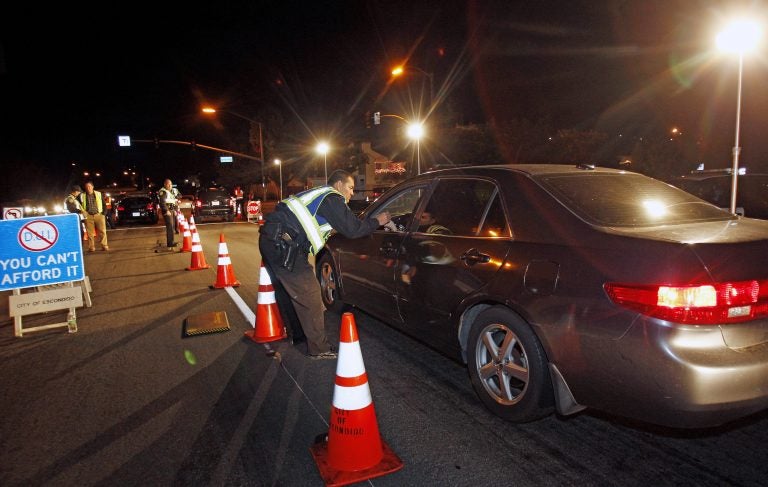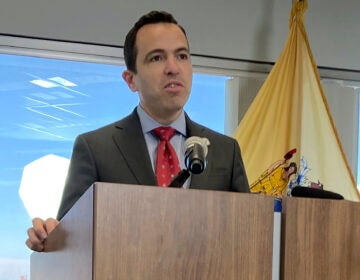N.J. Supreme Court to weigh reliability of experts on drugged driving
Drug recognition experts testify about whether a driver was under the influence. But critics call it “junk science.”

Drug recognition experts testify about whether a driver was under the influence. But critics call it “junk science.” (Lenny Ignelzi/AP Photo)
A method long used by police to spot drivers who are high on drugs will go under the microscope in New Jersey.
The state Supreme Court this week ordered a hearing on the scientific reliability of the drug recognition expert, or DRE, methodology.
It comes after critics challenged the 12-step protocol in court, claiming that it was not grounded in science and that police officers were not trained as medical professionals.
“[The DRE method] is basically asking an officer to render a medical opinion about the effect of a drug on a person’s brain,” said Kim Schultz, a New Jersey assistant deputy public defender. “An officer, in our opinion, is not in a position to make that sort of determination.”
But backers of the method used by police in all 50 states say it has been proven successful and is critical to prosecuting drugged driving cases.
“You don’t have doctors on staff at police departments. You can’t drag everybody before a doctor,” said Brian Mason, president of the New Jersey State Municipal Prosecutors’ Association.
Police officers trained in the DRE methodology look for physical signs like pupil dilation and pulse rate to determine what class of drugs a driver may have taken and whether the driver is too intoxicated to drive. Prosecutors trying drugged driving cases frequently rely on the expert testimony of a DRE to secure a conviction.
Opponents have long held that the method is “junk science.” Skeptics say the DRE methodology may be loosely based on traditional medical concepts but is inaccurate in proving drug intoxication. Critics also claim that police officers do not have the advanced medical training necessary to understand different — and sometimes conflicting — physical symptoms.
The appeal before the Supreme Court was brought by Michael Olenowski, a Denville man who said DRE testimony was unfairly used to win two drunk driving convictions against him, despite the fact that his blood alcohol content was below the legal limit.
Little over a month after hearing oral arguments in the case, the Supreme Court this week said it would appoint a special master to consider the scientific reliability of the DRE method. The special master will preside over a hearing where experts on both sides of the issue will give testimony and evidence.
Once the special master issues a report, the Supreme Court will decide whether the DRE expert testimony can be used in court.
That process is expected to take months if not longer, and the result could have major implications for an unknown number of drugged driving cases across the state each year.
Mason, the municipal prosecutor, said if New Jersey becomes the first state to completely bar DRE testimony from court, it could make convicting suspected drugged drivers much harder.
“It’s going to be extremely difficult. It’s going to be extremely expensive,” he said. “I’m hoping that day doesn’t come.”
WHYY is your source for fact-based, in-depth journalism and information. As a nonprofit organization, we rely on financial support from readers like you. Please give today.




